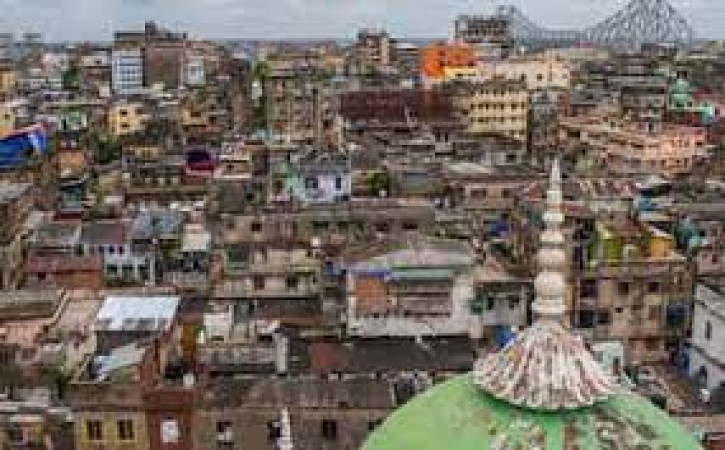
Bara Bazar
Haridwar . Uttarakhand . India
Duration
1 to 2 Days
1 to 2 Days
Best time to visit
Oct-Dec
Oct-Dec
Theme
Heritage
Heritage
Bara Bazar Travel Guide
Bara Bazar, located in Shillong, Meghalaya, is a bustling market known for its vibrant atmosphere and variety of local products. The market dates back to the colonial era and is a significant cultural hub in the region. Visitors flock to Bara Bazar to experience the rich history, beautiful landscapes, and unique tribal culture of Meghalaya.Top Attractions in Bara Bazar
- Explore the traditional Khasi market stalls
- Sample local delicacies at the food stalls
- Shop for handmade crafts and textiles
- Visit the nearby Elephant Falls
- Experience the vibrant nightlife in Shillong
Bara Bazar is Famous for
Known for its bustling market atmosphere, Bara Bazar is famous for its traditional Khasi market stalls and local products.Top Attractions in Bara Bazar
- Exploring the traditional Khasi market stalls
- Sampling local delicacies at the food stalls
- Shopping for handmade crafts and textiles
- Visiting the nearby Elephant Falls
- Experiencing the vibrant nightlife in Shillong
What's Great about Travelling to Bara Bazar?
- Experience the vibrant local culture
- Shop for unique handmade crafts
- Taste delicious local cuisine
- Explore the beautiful natural surroundings
What's Not So Great about Travelling to Bara Bazar?
- Limited accommodation options
- Crowded market streets
- Challenges in communication for non-local language speakers
- Varied weather conditions
Travel Tips for Bara Bazar
- Carry cash as many vendors may not accept cards
- Respect local customs and traditions
- Be prepared for bargaining at the market stalls
- Stay aware of your surroundings and belongings
Important Bara Bazar trip information
- Ideal Duration: 2-3 days
- Best Time to Visit: October to May
- Nearby Airports and Railway Stations: Shillong Airport and Guwahati Railway Station
FAQ's on Bara Bazar
Q1: What is the best time to visit Bara Bazar?
The best time to visit Bara Bazar is during the cooler months of October to March when the weather is pleasant and ideal for exploring the bustling markets and cultural sites. Avoid the monsoon season from June to September due to heavy rains that may disrupt travel plans.
Q2: Do I need a visa to travel to Bara Bazar?
Tourists visiting Bara Bazar typically need a tourist visa. Make sure to check the specific visa requirements based on your nationality and the duration of your stay. Some countries may have visa exemptions or visa-on-arrival options for short visits.
Q3: What are the must-visit attractions in Bara Bazar?
Bara Bazar offers a rich tapestry of attractions including the vibrant marketplaces, historic landmarks like the Old Fort, and cultural sites such as the National Museum. Don't miss exploring the local bazaars and trying street food for an authentic experience.
Q4: Is Bara Bazar a safe place to travel?
Bara Bazar is generally safe for travelers, but like any destination, it's essential to stay vigilant, especially in crowded areas and at night. Be cautious of pickpockets and follow basic safety precautions to have a hassle-free trip.
Q5: What is the local currency in Bara Bazar and can I use credit cards?
The local currency in Bara Bazar is the . While credit cards are accepted in some hotels and restaurants in major cities, it's advisable to carry cash for smaller establishments and markets. ATMs are also available in urban areas.
Q6: What is the local cuisine like in Bara Bazar?
Bara Bazar boasts a diverse culinary scene with flavorful dishes like biryani, kebabs, and sweets like rasgulla. Vegetarians can enjoy lentil-based dishes and vegetable curries. Be open to trying local delicacies in bustling eateries and street food stalls.
Q7: What transportation options are available in Bara Bazar?
Transportation in Bara Bazar includes buses, taxis, and rickshaws for getting around the city. For longer journeys, consider hiring a car or using intercity buses. Public transport is affordable, but taxis offer more convenience for tourists.
Q8: Are there any cultural norms or etiquette I should be aware of when visiting Bara Bazar?
Respect local customs in Bara Bazar by dressing modestly, removing shoes before entering religious sites, and greeting people with a smile. It's customary to use your right hand for eating and giving/receiving items. Learning a few basic phrases in Bengali can also show respect for the local culture.
Q9: I am a travel agent. How can I buy travel leads of Bara Bazar?
Register yourself as a travel agent at agents.tripclap.com and then you can buy travel leads to Bara Bazar once your account is approved. For more details contact our support team at +91-8069186564 or support@tripclap.com
